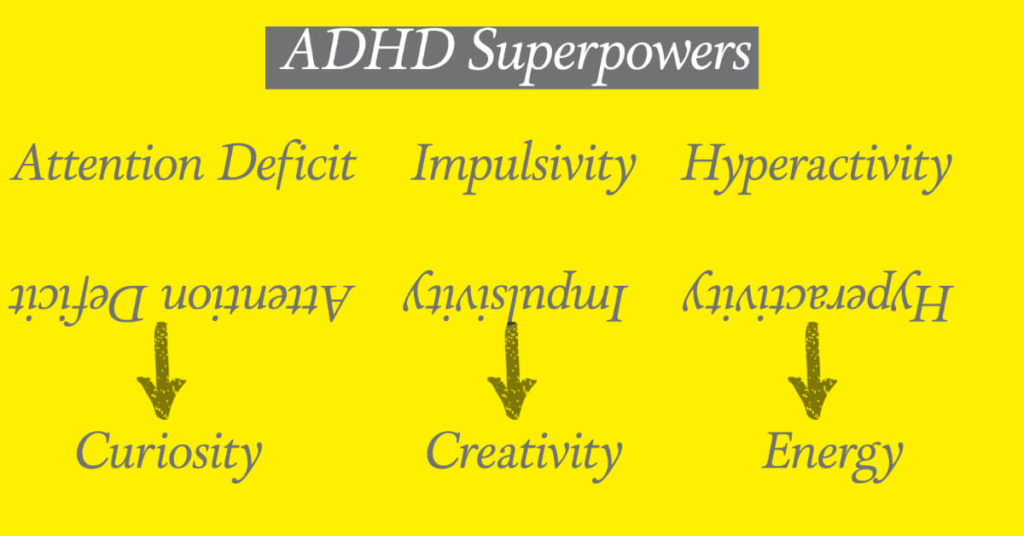ADHD Superpowers

The ADHD “Superpowers”
Many deficits that characterize “Attention-Deficit/Hyperactivity Disorder” have flip-sides that are superpowers, which, if nurtured, pruned, and practised (like any other skill), will serve the purpose of optimizing the individual’s success in interacting with her world. We can provide accommodations to avoid unnecessary failure and shame by recognising the deficits. By naming and highlighting the superpowers, we can find new ways for kids to learn and grow into their best selves. Here is a list of some examples:
- Divergent thinking, creativity, generativity
- The flexibility of thought, movement, emotion
- Intuition and connection to emotion
- The “big feels,” when given space for expression, can be very informative in ways that aren’t accessible through a filter of rationality.
- We want to encourage the kid to learn and practice her capabilities in emotion regulation while at the same time encouraging exploration of some of the emotional intensities, giving space for them.
- Perception/observation/curiosity
- The ADHD brain is hungry for novelty and dynamic activity. It sees and tolerates/appreciates new ideas, movements, visualisations, and concepts.
- Individuals with ADHD often perceive (intuitively) connections or “flows” that are not appreciated by others. They often enjoy taking a “bird’s eye view” of things and asking the “what-if” questions.
- Need for movement and exploration.
- These kids will go places and find things that a more rule-tolerant individual might not consider.
- We should encourage these kids to go! Explore! And have her report back to us on what she finds and observes. Encourage the superpower of exploration; it’s good for humanity!
- The things discovered outside the boundaries of what’s prescribed are often the most profound.
- Low tolerance for tedium
- This ‘deficit’ is the mother of ingenuity and invention. To the child (and adult) with ADHD, the “penalty” of having to sit and comply for long days is so much worse than the risk of failure at trying something new; she would much instead try a thousand new things without the risk of failure than do the one thing everyone else is doing.
- Preference for active, hands-on tasks
- This will allow the child to discover pragmatic solutions and applications if encouraged.
- Arts, skills-based learning, theatre, invention
- Social influence and charisma
- This is a product of many previously mentioned superpowers (e.g., flexibility, openness, curiosity, boundless energy, perceptiveness, etc.)
- The infectious smile that says a million words is like an invitation saying, hey, come check this out, follow my imagination, do this skateboard flip, try this new dish I made, look at this building I designed, etc.
- Leadership
- The willingness to say things others might not say
- The tendency to be direct and concise
- The ability to hold multiple problem-solving tasks in mind at once
- A keen sense of group dynamics due to solid emotional intuition
